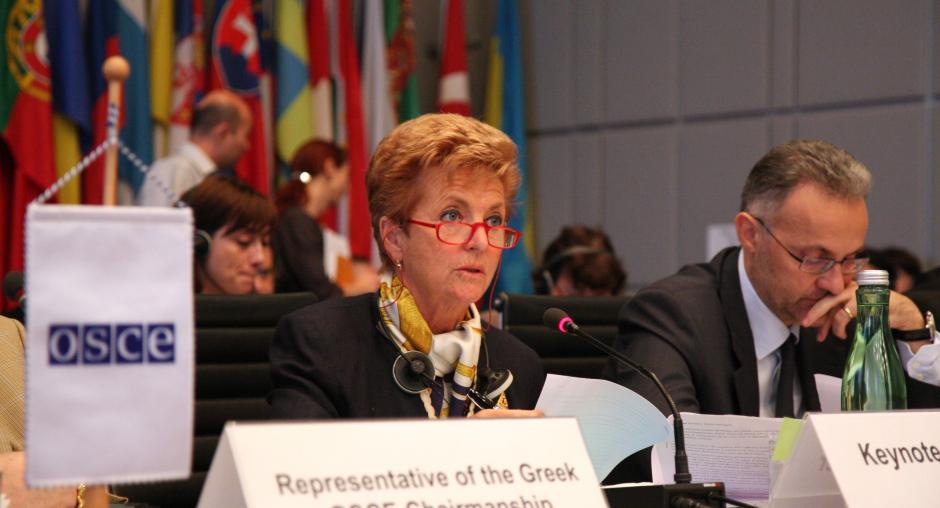OSCE meeting on freedom of religion or belief gets under way with calls for better implementation of commitments

VIENNA, 9 July 2009 - A special OSCE meeting on freedom of religion or belief opened today with calls for increased efforts by participating States to put into practice relevant commitments.
OSCE participating States have agreed to one of the most extensive sets of freedom of religion or belief standards, but governments are not doing enough to implement these commitments and let themselves be guided by them in tackling challenges, participants at the meeting were told.
"There can be no doubt that the promotion of freedom of religion or belief offers the best remedy to extremism, and adds an important safeguard to our collective security," said Ambassador Janez Lenarcic, the director of the OSCE Office for Democratic Institutions and Human Rights (ODIHR), which organized the meeting.
But he also stressed that religious commitment must not conflict with the respect for the rule of law: "Having obtained the status of a religious or belief community is not a licence for disregarding the law."
The representative of the Greek OSCE Chairmanship, Ambassador Nikolaos Kalantzianos, said there was a clear need for all participating States to make conscious efforts in this area and remain committed to upholding the OSCE's high standards.
Ombretta Fumagalli Carulli, a Professor at the Catholic University of the Sacred Hearth in Italy, said in her keynote speech that freedom of religion or belief is still violated daily in the OSCE region.
"Violations of the freedom of religion or belief ... occur predominantly where there are recurring episodes of violation of several human rights. In these countries religious freedom constitutes a sort of litmus paper to test the respect of all other human rights," she said.
But Carulli also emphasized that well established democracies are not exempt from challenges to the freedom of religion or belief: "For example, the false idea is more and more widespread that religions are a negative fact, a fact that should be fought against, instead of being an element of progress and well-being of our societies."
In advance of the meeting, some 100 civil society representatives from across the OSCE region called on participating States to "actively create an atmosphere in the public space within which freedom of religion or belief can best flourish and in which religious and belief communities can engage in full and fruitful dialogue".
